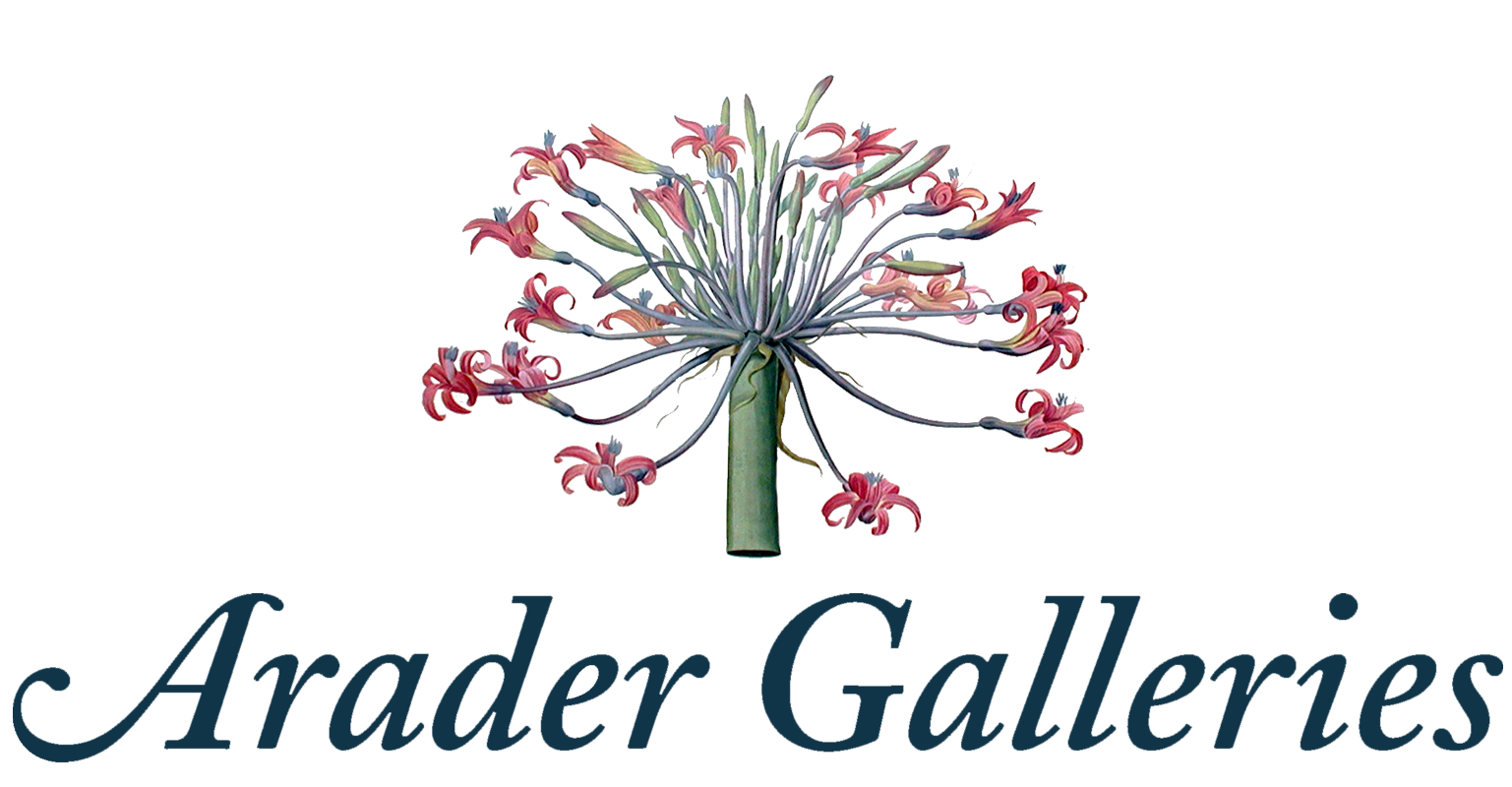Fuchs, Leonhart
Leonhart Fuchs (1501-1567)
De Historia Stirpium
Basel: 1547
Hand-colored woodcut engravings
Paper dimensions: 14 x 9.5 in.
Frame dimensions (silver frame): 19.5 x 14.5 in.
Frame dimensions (gold frame): 18.25 x 13 in.
Herbals are books containing the names and descriptions of plants and their medicinal properties. The herbal had declined during the Middle Ages, Western European herbals of that era were based on the works of classical authors, in particular Pedanios Dioscorides, the acient Greek writer who was the father of medical botany. This would change with the publication of Leonhart Fuchs' illustrated herbal De historia stirpium commentarii insigne. The plan and organization of the herbal was entirely original with Fuchs, although the work did include some material derived from his Classical predecessors. Fuchs' De historia stirpium represented an impressive first step from medieval superstition to modern botany.
Leonhart Fuchs, a German doctor of medicine, deplored the terrible state of medical practice during his lifetime. Most doctors of his time relied on information from illiterate apothecaries, whom were, in turn, depending upon the peasants who gathered roots and herbs for them. Fuchs realized that patients could easily be poisoned rather than cured because of improper identification of plants. Therefore he compiled this herbal to improve the German pharmacopoeia with a reference of accurate illustrations and identifications of medicinal herbs in both German and Latin.
The result was a book of great splendor, without equal among sixteenth-century herbals. It is illustrated with 511 hand-colored woodcut figures, all original and depicted from life. Fuchs looked to living plants for his illustrations, a departure from common practice at that time, but then "improved" them by removing any natural imperfections and by showing a plant in the flowering and fruiting stages simultaneously. These figures established a standard of botanical illustrations that has lasted to the present day, and more than 100 species were illustrated for the first time (including 12 New World plants such as maize, kidney bean, chili pepper, cactus, and tobacco). During Fuchs' lifetime, the herbal and its various abridgments went through 39 printing in Latin, German, French, Spanish and Dutch.
There are currently no products in this collection.
Subscribe to our newsletter:
Location
Arader Galleries
1380 Main Street
Saint Helena, CA 94574
Hours
Monday - Friday: 9 am to 5 pm
Saturday - Sunday: 11 am to 5 pm
For any inquiries you can reach the gallery through phone or email:
Tel: 707-225-4571
Email: josephine.arader@gmail.com
